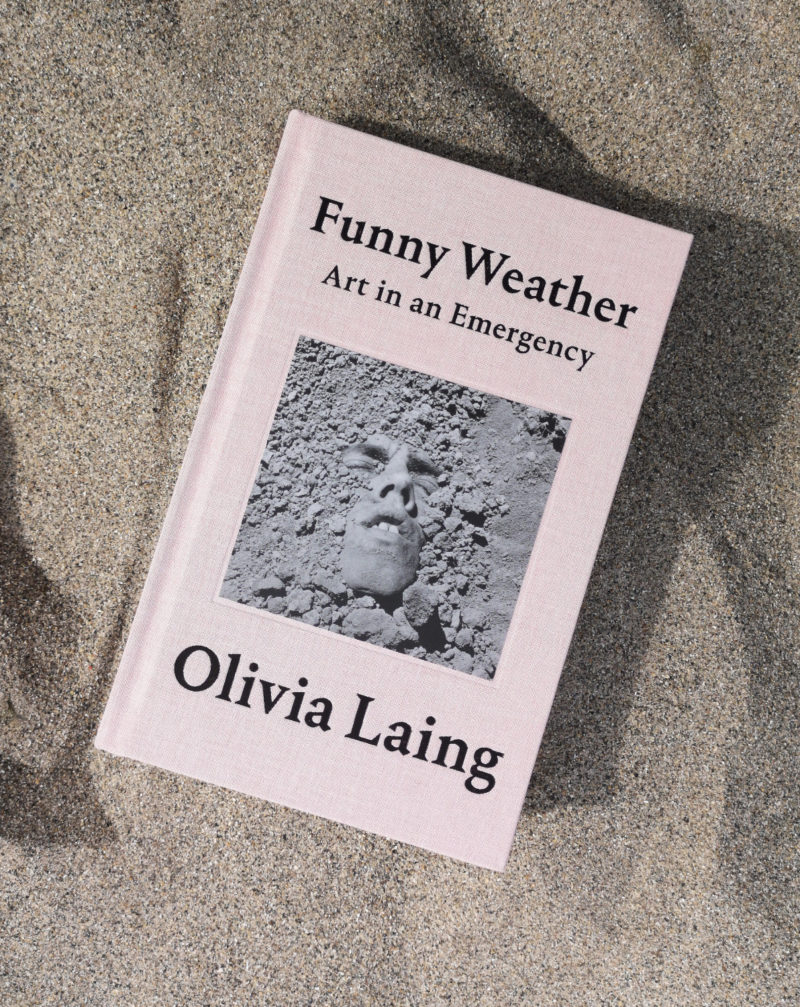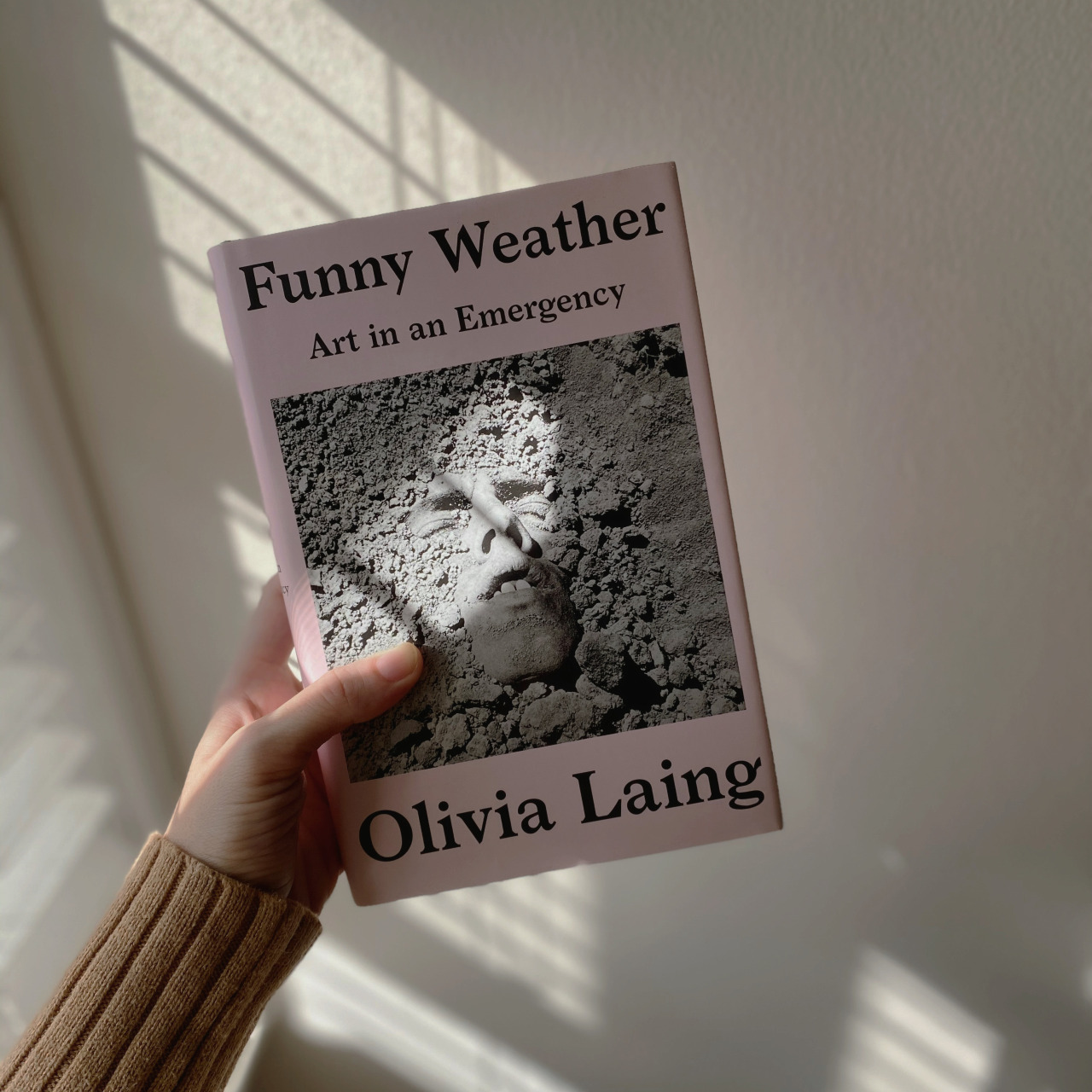
Released in April of 2020, at the outset of the COVID-19 outbreak in North America, Olivia Laing’s Funny Weather: Art in an Emergency examines the role of art during times of crisis, an investigation that has become crucial to a pandemic-weary world.
The book is a collection of essays that span her career as an art and culture critic and acclaimed writer. The title Funny Weather comes from a column that Laing began to write for frieze in 2015, in which she used art to digest and reflect on the political events of the time, like the refugee crisis.
Thirteen of Laing’s frieze columns are included in the book, alongside various essays, brief biographies, and love letters that analyze how artists, or how Laing herself, have used art to cope with or combat difficult circumstances. The result is a refreshing blend of research, analysis, social commentary, art criticism, and memoir.
Laing conjures both the political and the personal impact of artistic creation in Funny Weather. She discusses how a single image can be a protest, citing Jean-Michel Basquiat’s Defacement (The Death of Michael Stewart), a painting that responds to the death of his friend and fellow artist at the hands of the police.
Similarly, Laing points to Untitled (Silence = Death), the grisly image of artist and activist David Wojnarowicz with his lips stitched shut in condemnation of the government’s silence during the AIDS crisis.
To explore art as a form of personal therapy or escape, Laing outlines how painting allowed Georgia O’Keefe to ease the pains of illness and marital conflict and how Marguerite Duras unpacked childhood trauma in writing and rewriting the same story.

In chronicling the life and art of so many, Laing deals with a lot of pain, but takes care to record the triumph, healing, and liberation that emerges when pain is translated into art. Her writing is personal, compassionate, and convincing. She approaches each subject with a refreshing sense of warmth and candour.
The book is a striking defence of art, a defiant rejection of a cultural climate that increasingly prioritizes efficiency over creativity. We are led to believe that art is futile in the face of conflict or tragedy. According to Laing, however, it is precisely these times of emergency that demand artistic response. Art is vital, as Laing’s website reads, “as a force of resistance and repair, an antidote to a frightening time.”
No one could have predicted the perfect timing of this book, which was written before Covid-19 but somehow seems to predict it. Serendipitously, this is not the only instance where Laing’s pre-pandemic writing provides mid-pandemic wisdom. Her 2016 book The Lonely City explores loneliness in the work of artists like Andy Warhol and Edward Hopper, and is an essential read for those isolated by social distancing and quarantine regulations.
Laing’s prolificacy has only increased in recent years, with her new book, Everybody: A Book About Freedom to be published on April 29 in the UK and on May 4 in the US. It seems Laing’s writing itself has become an antidote to this frightening time, and a force of repair and reflection and for readers affected by the challenges of COVID-19.





